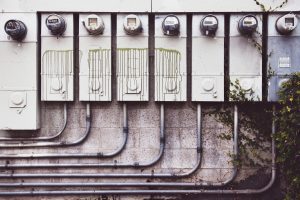Electric boilers and heat pumps are two popular options for heating homes. Both systems work by converting electrical energy into heat, but they do so in different ways.
An electric boiler uses electricity to heat water, which is then circulated through radiators or underfloor heating systems to provide warmth in the home. It operates similarly to a traditional gas or oil boiler, but without the need for a fuel source other than electricity.
On the other hand, a heat pump uses electricity to transfer heat from the outside air or ground into the home. It works like a refrigerator in reverse, extracting heat from the environment and transferring it indoors. Heat pumps can also be used for cooling during the summer months.
Choosing the right heating system for your home is crucial as it can significantly impact your comfort, energy efficiency, and overall costs. It’s important to consider factors such as energy efficiency, cost, installation process, maintenance requirements, heating capacity, eco-friendliness, noise levels, and durability when making a decision.
Key Takeaways
- Electric boilers and heat pumps are two popular options for home heating.
- Heat pumps are generally more energy efficient than electric boilers.
- Electric boilers are typically less expensive to install than heat pumps.
- Both electric boilers and heat pumps require regular maintenance to ensure optimal performance.
- Heat pumps generally have a higher heating capacity than electric boilers.
Energy Efficiency: Comparing the Energy Efficiency of Electric Boilers and Heat Pumps
Energy efficiency is an important consideration when choosing a heating system. It refers to how effectively a system converts energy into heat. A more energy-efficient system will require less electricity to produce the same amount of heat, resulting in lower energy bills.
When comparing electric boilers and heat pumps, heat pumps are generally considered more energy-efficient. This is because they transfer heat from the environment rather than generating it directly. Heat pumps can achieve high levels of efficiency by utilizing renewable energy sources such as air or ground temperature.
Electric boilers, on the other hand, convert electricity directly into heat. While they can still be efficient in terms of converting electrical energy into heat, they may not be as efficient as heat pumps due to potential losses in the conversion process.
Advantages of electric boilers include their simplicity and ease of installation. They also do not require a separate outdoor unit like heat pumps, making them suitable for homes with limited outdoor space. However, they may not be as energy-efficient as heat pumps, especially in colder climates where heat pumps can extract heat from the ground.
Cost: Analyzing the Cost Differences between Electric Boilers and Heat Pumps
The cost of a heating system is an important factor to consider when making a decision. It includes both the initial cost of purchasing and installing the system, as well as the long-term cost of operating and maintaining it.
In terms of initial cost, electric boilers are generally more affordable than heat pumps. Electric boilers have a simpler design and do not require an outdoor unit, which can reduce installation costs. Heat pumps, on the other hand, require more complex installation due to the need for an outdoor unit and refrigerant lines.
However, when considering the long-term cost, heat pumps may be more cost-effective. Heat pumps are known for their energy efficiency, which can result in lower energy bills over time. Additionally, heat pumps can also provide cooling during the summer months, further increasing their value.
Factors that can affect the cost of each system include the size of the home, insulation levels, climate conditions, and local electricity rates. It’s important to consider these factors when comparing the cost differences between electric boilers and heat pumps.
Installation: Comparing the Installation Process of Electric Boilers and Heat Pumps
| Installation Process | Electric Boilers | Heat Pumps |
|---|---|---|
| Installation Time | 2-3 days | 3-5 days |
| Installation Cost | 3,000-5,000 | 5,000-8,000 |
| Space Requirements | Small space needed | Requires outdoor unit and larger indoor space |
| Energy Efficiency | 95%-100% | 300%-400% |
| Maintenance | Minimal maintenance required | Regular maintenance required |
The installation process is another important consideration when choosing a heating system. It involves determining the location of the system, connecting it to the existing heating infrastructure, and ensuring proper ventilation and safety measures.
Electric boilers have a relatively simple installation process compared to heat pumps. They can be installed in various locations within the home, such as utility rooms or basements. The installation typically involves connecting the boiler to the electrical supply and water pipes.
Heat pumps, on the other hand, require more complex installation due to the need for an outdoor unit. The outdoor unit needs to be placed in a suitable location, such as a backyard or rooftop, and connected to the indoor unit through refrigerant lines. This requires additional planning and potentially more time and effort during installation.
Factors that can affect the installation process include the accessibility of the installation location, the distance between the indoor and outdoor units, and any necessary modifications to the existing heating infrastructure.
Maintenance: Understanding the Maintenance Requirements of Electric Boilers and Heat Pumps
Regular maintenance is essential for ensuring the optimal performance and longevity of a heating system. It involves tasks such as cleaning, inspecting, and servicing various components of the system.
Electric boilers have relatively low maintenance requirements compared to heat pumps. They do not have any moving parts or refrigerant lines that require regular servicing. Maintenance for electric boilers typically involves checking for leaks, cleaning the water tank, and inspecting electrical connections.
Heat pumps, on the other hand, require more frequent maintenance due to their more complex design. The outdoor unit needs to be regularly cleaned to remove debris and ensure proper airflow. The refrigerant lines also need to be inspected for leaks or damage. Additionally, heat pumps may require periodic servicing of components such as fans, compressors, and valves.
Factors that can affect the maintenance requirements include the location of the system (indoor or outdoor), climate conditions (dust, humidity), and usage patterns.
Heating Capacity: Comparing the Heating Capacity of Electric Boilers and Heat Pumps

The heating capacity of a system refers to its ability to provide sufficient heat to meet the heating demands of a home. It is measured in kilowatts (kW) or British Thermal Units (BTUs).
When comparing electric boilers and heat pumps, heat pumps generally have a higher heating capacity. This is because they can extract heat from the environment, which is a virtually unlimited source. Heat pumps can provide both space heating and hot water heating, making them suitable for larger homes with higher heating demands.
Electric boilers, on the other hand, have a limited heating capacity based on the size of the boiler and the electrical supply. They may be more suitable for smaller homes or as a supplementary heating system in larger homes.
Factors that can affect the heating capacity include the size of the home, insulation levels, climate conditions, and desired indoor temperature.
Eco-Friendliness: Analyzing the Environmental Impact of Electric Boilers and Heat Pumps
The environmental impact of a heating system is an important consideration in today’s world. It refers to the emissions and energy consumption associated with the operation of the system.
When comparing electric boilers and heat pumps, heat pumps are generally considered more eco-friendly. This is because they utilize renewable energy sources such as air or ground temperature to provide heat. Heat pumps can significantly reduce greenhouse gas emissions compared to traditional fossil fuel-based heating systems.
Electric boilers, on the other hand, rely on electricity generated from various sources, including fossil fuels. While electric boilers themselves do not produce any emissions during operation, the environmental impact depends on the source of electricity used.
Factors that can affect the environmental impact include the energy mix of the local electricity grid, the efficiency of the heating system, and any emissions associated with manufacturing and disposal.
Noise Levels: Comparing the Noise Levels of Electric Boilers and Heat Pumps
The noise levels of a heating system can impact comfort levels in the home. It’s important to consider noise levels, especially if the system will be installed in living areas or bedrooms.
When comparing electric boilers and heat pumps, electric boilers are generally quieter. They do not have any moving parts or fans that can generate noise. Electric boilers operate silently, providing a comfortable and quiet environment.
Heat pumps, on the other hand, can produce some noise during operation. The outdoor unit contains fans and compressors that can generate noise, especially when operating at higher speeds. However, advancements in technology have led to quieter heat pumps, and many models now come with noise-reducing features.
Factors that can affect the noise levels include the location of the system (indoor or outdoor), the distance between the system and living areas, and the design and quality of the system.
Durability: Understanding the Durability of Electric Boilers and Heat Pumps
The durability of a heating system is an important consideration as it can impact the lifespan and reliability of the system. A more durable system will require less frequent repairs or replacements, resulting in lower maintenance costs.
When comparing electric boilers and heat pumps, both systems can be durable if properly maintained. Electric boilers have a simpler design with fewer components, which can contribute to their durability. However, they may be more susceptible to corrosion or leaks if not properly maintained.
Heat pumps have more complex designs with various components such as fans, compressors, and refrigerant lines. These components may require periodic servicing or replacement over time. However, advancements in technology have led to more durable heat pumps that can withstand harsh weather conditions and provide reliable performance.
Factors that can affect the durability include the quality of the system, regular maintenance, climate conditions, and usage patterns.
Choosing the Best Option for Your Home – Electric Boiler or Heat Pump?
In conclusion, choosing between an electric boiler and a heat pump depends on various factors such as energy efficiency, cost, installation process, maintenance requirements, heating capacity, eco-friendliness, noise levels, and durability.
If energy efficiency is a top priority and you live in a moderate climate with access to renewable energy sources, a heat pump may be the best option. Heat pumps can provide both heating and cooling capabilities while significantly reducing energy consumption and greenhouse gas emissions.
If cost and simplicity are more important factors, an electric boiler may be a suitable choice. Electric boilers have lower initial costs and simpler installation processes. They can provide reliable heating without the need for an outdoor unit.
Ultimately, it’s important to consider your specific needs, budget, and preferences when choosing a heating system for your home. Consulting with a professional HVAC technician can also provide valuable insights and recommendations based on your unique circumstances.
If you’re interested in sustainable living and eco-friendly home solutions, you might also enjoy reading this article on the importance of sustainable cleaning practices. It provides valuable insights into how small changes in our cleaning routines can have a big impact on the environment. Check it out here.
FAQs
What is an electric boiler?
An electric boiler is a heating system that uses electricity to heat water or provide central heating to a building. It works by heating water in a tank or cylinder and then distributing it through pipes to radiators or underfloor heating systems.
What is a heat pump?
A heat pump is a heating and cooling system that uses electricity to transfer heat from one location to another. It works by extracting heat from the air or ground outside a building and transferring it inside to provide heating, or vice versa for cooling.
What are the advantages of an electric boiler?
Electric boilers are generally cheaper to install than other types of heating systems, as they don’t require a flue or gas supply. They are also very efficient, as all the electricity used is converted into heat, and they can be used in small spaces.
What are the disadvantages of an electric boiler?
Electric boilers can be more expensive to run than other types of heating systems, as electricity is generally more expensive than gas. They also require a lot of electricity to heat water, which can put a strain on the electrical supply to a building.
What are the advantages of a heat pump?
Heat pumps are very efficient, as they use electricity to transfer heat rather than generate it. They can also be used for cooling as well as heating, and can be more cost-effective to run than other types of heating systems.
What are the disadvantages of a heat pump?
Heat pumps can be more expensive to install than other types of heating systems, as they require a lot of equipment and may need to be installed by a specialist. They can also be less effective in very cold temperatures, as there is less heat available to extract from the air or ground.


